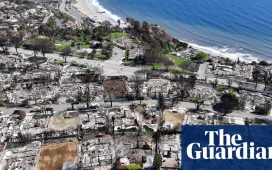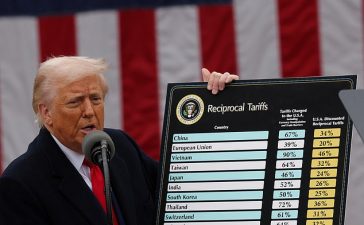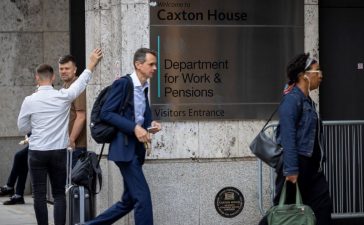Unlock the Editor’s Digest for free
Roula Khalaf, Editor of the FT, selects her favourite stories in this weekly newsletter.
Axa’s chief executive said its proposed €5bn deal to offload its asset manager to banking group BNP Paribas would give it significant firepower to “reinforce” its core insurance operation through a string of acquisitions.
The French insurance group announced on Thursday evening that it had entered into exclusive negotiations with BNP in a transaction that would give the latter a leading European fund manager with €1.5tn in assets under management.
If the deal goes through, the insurer will receive overall proceeds of €5.4bn, about €3.8bn of which would be used to buy back shares, based on today’s prices, to counterbalance the earnings impact.
“We have a significant amount that remains, and also when you look at [our cash position], we have sufficient means to use it to reinforce ourselves in the insurance space,” Axa chief Thomas Buberl told the Financial Times.
Businesses in the property and casualty insurance and health insurance sectors would each be a “good target”, Buberl added. Alongside the proposed BNP deal, Axa announced a €423mn bolt-on acquisition of an Italian insurer, Nobis, which is predominantly a retail insurer in areas such as motor. “This is the kind of acquisition that we will be looking at,” said Buberl.
Axa will look at reinforcing its core geographies including Europe and Japan, he added.
Buberl said the decision to sell its asset manager reflected the desire to create a “European champion” that could compete in what is a heavily consolidated fund management sector that is increasingly dominated by big global firms.
“When you look at the consolidation of the industry, [Axa Investment Managers] is certainly not big enough.”
He added that the growing regulatory burden in each major area of finance had also made it less attractive to combine them under one roof.
“The business of asset management and insurance becomes more and more distinct,” he said, also highlighting the sale in 2019 of its banking operation in Belgium. “Every company needs to make their own choice. For us, what’s right is to focus . . . less is more.”
Buberl said political instability in the group’s French home market — which accounts for roughly a quarter of its overall assets and underlying earnings — was not an “easy situation” but should not affect its business for now.
Parliamentary elections in June and July delivered a hung parliament, creating uncertainty over who would lead the next government and what would remain of President Emmanuel Macron’s pro-business reform agenda, as well as rattling stock markets.
“Everybody needs health insurance, everybody needs car insurance. There are still business owners in France that . . . need insurance,” said Buberl. “I am looking at a country from a structured perspective, around demographics, around business sentiment. France is in a good space.”










